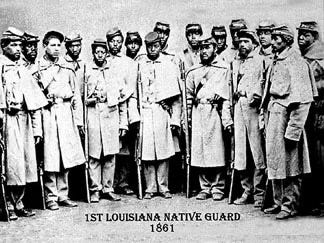Why Black History Month Is So Dull
It is not your fault. You are not racist. It is actually just boring.
Black History Month (BHM) supposedly exists because it highlights the allegedly underappreciated elements of Blacks in American History.
Prior to the Second Summer of Rage in 2020, BHM usually highlighted the same figures over and over again like Martin Luther King and Frederick Douglas.
Since 2020, this pool has slightly expanded to include radicals like Malcolm X, drug addicts like George Floyd, and ahistorical folk hero drug addicts like Marsha P. Johnson.
Even though the pool of honorees has expanded, it still fits within a tight ideological confine. To be honored in Black History Month, you must be a black person who has done something convenient for a leftist cause.
Conservative blacks and blacks inconvenient to leftwing political narratives are ignored.
Clarence Thomas & Thomas Sowell
Supreme Court Justice Clarence Thomas and economist Thomas Sowell are impressive men irrespective of their race.
Thomas is one the longest-serving and most influential justices to have ever served on the Court. Sowell is a renowned economist and author of numerous best-selling books on free market economics.
The fact that both men are black is incidental to their success.
Certainly, these achievements merit recognition in most examinations of American history and they are not dependent on myth like Marsha Johnson’s supposedly throwing of the first brick at Stonewall. (Johnson has admitted to not being at Stonewall until after the riots occurred and he was so deep into drug addiction at this point his testimony can not be considered credible).
The exclusion of Thomas and Sowell and the veneration of a drug-riddled transexual are demonstrative of the tight political confines Black History Month suffers from.
High achievers will not be considered part of black history unless they make history for left-wing causes.
(Regiment of Black Confederates from Louisiana)
Black Confederates/Slave Holders & Black Anti-Civil Rights Activists
One can not help but notice that the name is Black History Month, not Black Achievement Month.
If Black History Month is to be an authentic telling of history rather than a catalog of feel-good stories, it would need to include a wide range of black positions on historical events.
For example, if we were to have an Anglo history month, we would not arbitrarily decide to give only the perspective of the English Puritans or Cavaliers. We would highlight what both sides thought, what they did, their conflicts, and what the outcomes were.
To do otherwise would fail the purpose of history.
Yet BHM has not done this.
Because BHM is more political than historical, it can not note that one of the first slaveholders in America, Anthony Johnson, was black.
It is no surprise that the New York Times, the home of the 1619 Project–– an organization that argues America’s true founding started with the first importation of slaves–– left that fact out of their Celebrating Black History piece.
Likewise, it ignored that one of the largest slave owners in North Carolina’s history was a free black named John Carruthers Stanly and that numerous free blacks volunteered to fight for the Confederacy.
Only WITN, one obscure North Carolina local news station, covered the Caruthers story (video above) almost twenty years ago.
Including Anthony Johnson and Caruthers in Black History Month literature would make historical depictions more dynamic and authentic to the many black experiences.
Further, other major proponents of Black History Month like The Washington Post are perpetually seeking out “unsung heroes” who have been ignored or forgotten.
Yet they often do not include Booker T. Washington, a black educator who generally opposed the Civil Rights Movement; believing education, jobs, and strong black families would do more to advance the status of blacks than any political movement.
Washington is eliminated from these discussions because he does not fit neatly into a narrative that all blacks were uniform in their views on all things and it avoids challenging orthodoxies on major American events.
Sanitization
More than just favoring low-achieving leftist blacks to high-achieving conservative blacks and ignoring any figure inconvenient to BHM’s political narrative, Black History Month fails to be good history by ignoring the struggles of blacks that do not fit neatly in a “white oppressor” dynamic.
This gives most Black History Month celebrations a weird propagandistic feel.
Few depictions of Black History Month will include mentions of the crack epidemic of the 1980s. This was a significant epoch for blacks and yet in Harvard’s BHM and Medicine celebration, there is no mention of this major medical event.
The American Association of Medical Colleges also edits the crack epidemic out of its depictions of black pioneers in medicine.
Ignoring the crack epidemic for American blacks is like ignoring the struggles of the Dust Bowl for Texan ranchers. It edits out major segments of history and deprives readers of learning how communities survived those struggles.
Further, discussions of Black History In The Arts can not reconcile how supposedly racist and intolerable films like Gone With The Wind afforded Hattie McDaniel (Mammy) the first Academy Award ever given to a black.
It can not answer why McDaniel was able to beat Olivia De Havilland for Best Supporting Actress when De Havilland was white and had far more screen time than McDaniel.
This fact, like Mammy’s character, shows the dynamic ways blacks existed throughout American history. It is omitted because it does not fit the narrative most celebrations of Black History Month have established for that period in the arts.
If you feel bored seeing a Black History Month advertisement or program, it is not your fault.
Black History Month celebrations are dull because they are not history at all, they are highly curated, tightly restricted, political narratives that exclude contrarian, dissident, and inconvenient black figures at the expense of blacks and proper historical education.
It is dull because it is low quality and condescending–– much like NPR.
*Note from author: Like what you read? Share this article with a friend or subscribe using the buttons below now. Every subscription (even the free ones) or share helps support independent media in Texas and helps Cowtown Caller share its message with new audiences! *





